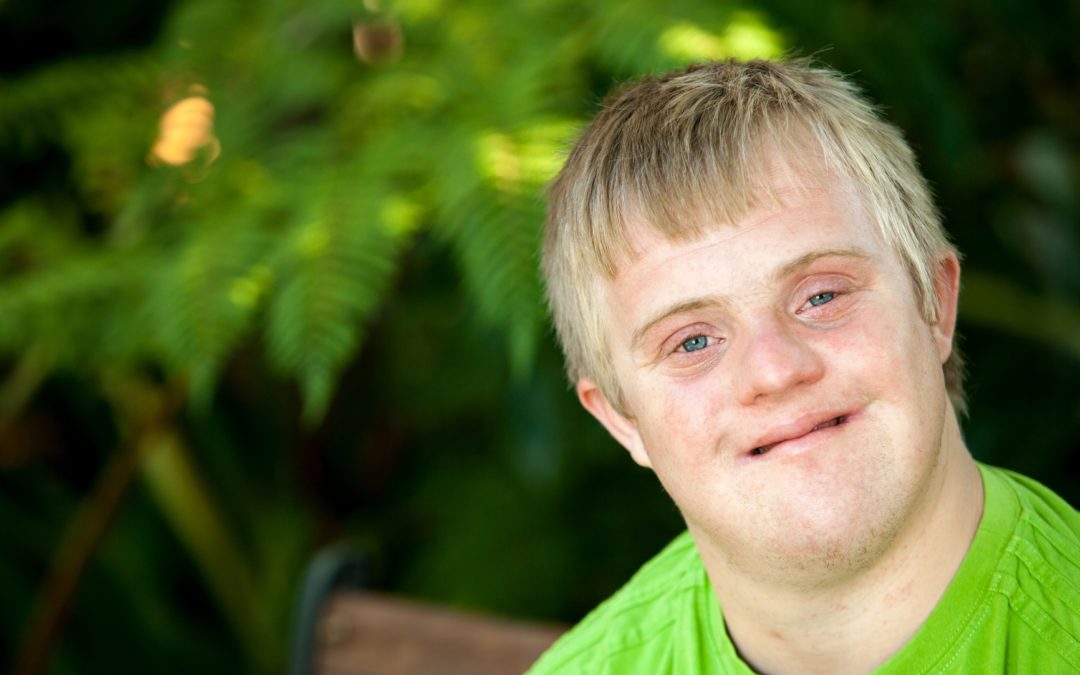Down syndrome is a genetic disorder (the chromosome abnormality is acquired at the time of conception) in which a person has extra genes because of extra chromosome 21 material. The syndrome causes delays and limitations in physical and intellectual development. The extra chromosome material can be inherited from either parent. Common characteristics of the syndrome include: low muscle tone, flat face (low nasal bridge and small nose), eye openings that slant downward and inward, single crease across the centre of the palm, smaller than normal size and delay of both physical and intellectual development.
As they age, those affected by Down syndrome have a greatly increased risk of developing a type of dementia that’s either the same as or very similar to Alzheimer’s disease. Alzheimer’s disease and Down syndrome share a genetic connection, leading to the increased risk of dementia at an earlier age. Understandably, many families and caregivers are especially worried about this possibility, which is one reason why this topic is becoming so popular.
Most (and maybe all) people with Down syndrome develop the brain changes associated with Alzheimer’s. However, Alzheimer’s is not more common in individuals with intellectual disabilities from causes other than Down syndrome. The percentage of people with Down syndrome that have Alzheimer’s disease increases with age, with a majority occurring in people older than 60. Alzheimer’s disease decreases survival in people with Down syndrome who are older than 45. Often, there may be potential difficulties in making a diagnosis. People with Down syndrome may not present their symptoms verbally, because of their impaired communication skills. Even if dementia is diagnosed it should be remembered that changes in presentation might be due, or partially due, to social or emotional difficulties.
Getting accurate information and education about the risks of dementia in those affected by Down syndrome is an important way of empowering oneself to prepare for the future.
